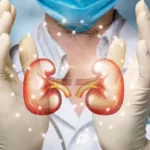The Best Fluffy Pancakes recipe you will fall in love with. Full of tips and tricks to help you make the best pancakes.
Kidney infection, also known as pyelonephritis, is a serious condition that can have a significant impact on an individual’s health and well-being. It is important to understand the signs, symptoms, causes, and complications associated with kidney infections in order to effectively manage and prevent this condition. In this comprehensive article, we will explore the underlying factors that can lead to kidney infections, including the mode of infection and common indicators.
We will delve into the diagnosis, treatment, and management of kidney infections, as well as the potential risks and challenges involved. We will discuss the recovery process, prognosis, and preventive measures for kidney infections, providing valuable insights into living with this condition and when to seek medical assistance. Whether you are looking to expand your knowledge on kidney infections or seeking practical tips for self-care, this article will provide you with the essential information you need to navigate this health concern effectively.
Key Takeaways:
- Kidney infections, also known as pyelonephritis, can have a significant impact on one’s health and well-being.
- Common indicators of kidney infection include fever, pain in the back or side, and frequent urination with a strong odor.
- Factors such as bacteria entering the urinary tract, weakened immune system, and urinary tract obstructions can lead to kidney infections.
Overview of Kidney Infection (Pyelonephritis)
A kidney infection, also known as pyelonephritis, is a serious condition that occurs when a urinary tract infection spreads to the kidneys, leading to potentially severe complications.
Pyelonephritis typically begins as a bladder infection caused by bacteria, such as E. coli, that ascend the urinary tract. When these bacteria reach the kidneys, they can cause inflammation and swelling of the renal tissue. This can impair kidney function and lead to symptoms like fever, chills, back or side pain, nausea, vomiting, and frequent urination. If left untreated, kidney infections can cause permanent damage, sepsis, or even life-threatening complications, especially in vulnerable individuals such as pregnant women or those with compromised immune systems.
Understanding the condition and its impact
Understanding the nature and impact of kidney infection, particularly pyelonephritis, is crucial for recognizing its symptoms, seeking timely treatment, and preventing potential complications.
Kidney infections, such as pyelonephritis, can significantly impact a person’s overall health. If left untreated, they can lead to severe complications, including kidney damage and bloodstream infections. Recognizing the early symptoms, such as fever, back pain, and frequent urination, is vital in initiating prompt medical intervention. Timely treatment with antibiotics is essential to clear the infection and prevent it from causing lasting harm. Ignoring the signs of a kidney infection can lead to serious and sometimes life-threatening consequences, underscoring the importance of early diagnosis and management.
Signs and Symptoms of Kidney Infection
Recognizing the signs and symptoms of a kidney infection, such as pyelonephritis, is essential for prompt diagnosis and effective management of the condition.
Common indicators of a kidney infection may include:
- pain in the abdomen or back,
- frequent and painful urination,
- fever, chills, and nausea,
- fatigue and general feeling of illness.
The symptoms can vary in intensity and may not all present at the same time. It is crucial to seek medical attention if these symptoms are experienced, as untreated kidney infections can lead to serious complications including kidney damage and sepsis.
Identifying the common indicators
Identifying the common indicators of a kidney infection, particularly pyelonephritis, involves recognizing specific symptoms such as fever, pain in the back or side, and changes in urine color or odor.
Individuals with a kidney infection may experience persistent high fever, often accompanied by chills and sweating. The pain in the back or side is typically concentrated on one side and can range from dull aching to intense discomfort. Discomfort during urination or the urgency to urinate frequently, or conversely, difficulty in passing urine can also signify a kidney infection. The changes in urine color or odor can manifest as cloudy, foul-smelling, or blood-tinged urine, further indicating potential renal complications.
Causes of Kidney Infections
Exploring the underlying causes of kidney infections, including pyelonephritis, involves understanding the role of bacteria, particularly E. coli, and the various risk factors that contribute to the development of the condition.
Pyelonephritis, a type of kidney infection, is primarily caused by the invasion of E. coli bacteria into the urinary tract, leading to inflammation and infection of the kidneys. Other common pathogens such as Klebsiella, Serratia, and Enterococcus may also contribute to kidney infections, although E. coli remains the predominant culprit.
Various risk factors, such as urinary tract obstructions, weakened immune system, bladder dysfunction, and frequent use of catheters, can predispose individuals to kidney infections. Certain behavioral habits, like inadequate hydration, holding urine for prolonged periods, and improper hygiene, can also increase the susceptibility to this condition.
To mitigate the risk of kidney infections, maintaining good personal hygiene, staying hydrated, and promptly treating urinary tract infections are essential preventive measures. Seeking timely medical attention and promptly addressing any symptoms of urinary tract infections can aid in reducing the likelihood of kidney infections.
Exploring the underlying factors
Exploring the underlying factors that contribute to kidney infections, particularly pyelonephritis, involves understanding the pivotal role of bacterial infiltration, the impact of specific pathogens such as E. coli, and the modifiable and non-modifiable risk factors associated with the condition.
A kidney infection, also known as pyelonephritis, typically occurs when bacteria, most commonly Escherichia coli (E. coli), enter the urinary tract and ascend to the kidneys, leading to inflammation and infection within the renal tissue.
Understanding the risk factors associated with kidney infections is crucial for prevention. Modifiable factors such as inadequate fluid intake, urinary tract obstructions, and suppressed immune function can increase susceptibility to infections, while non-modifiable factors include gender, age, and genetic predisposition.
Preventive strategies for reducing the risk of pyelonephritis embrace good hygiene practices, prompt treatment of urinary tract infections, and adequate hydration, all of which play a pivotal role in minimizing the incidence and recurrence of kidney infections.
How Kidney Infections Occur
Understanding the mode of infection for kidney infections, especially pyelonephritis, involves examining the routes through which bacteria, often introduced via urinary catheters or due to conditions like vesicoureteral reflux, infiltrate the urinary tract and reach the kidneys.
Once the bacteria have gained entry into the urinary tract, the profound risk factors associated with recurrent urinary tract infections (UTIs) or immunosuppression can facilitate their ascent towards the kidneys. Medical procedures such as cystoscopy or insertion of nephrostomy tubes can also provide avenues for bacterial access to the kidneys. These routes pave the way for the bacteria to travel upwards along the ureters and ultimately invade the renal pelvis and kidney parenchyma, resulting in the development of pyelonephritis.
Understanding the mode of infection
Understanding the mode of infection for kidney infections, particularly pyelonephritis, is essential for recognizing the potential routes of bacterial infiltration, including the influence of urinary catheters and the impact of conditions such as vesicoureteral reflux on the progression of the infection.
Kidney infections, also known as pyelonephritis, typically occur when bacteria travel up the urinary tract and infect the kidneys. The most common route of infection involves ascending from the bladder through the ureters to the kidneys, resulting in inflammation and tissue damage. This pathogen invasion can be facilitated by various factors, such as the use of urinary catheters, which provide a direct pathway for bacteria to enter the urinary system.
Underlying conditions like vesicoureteral reflux, which causes urine to flow backward from the bladder into the kidneys, can contribute to the persistence and severity of kidney infections. The reflux allows bacteria from the bladder to reach the kidneys more easily, leading to recurrent infections and potential complications.
Complications Associated with Kidney Infection
Recognizing the potential complications associated with kidney infections, such as pyelonephritis, is crucial for understanding the gravity of the condition, including risks of sepsis, kidney scarring, and pregnancy complications.
Without prompt and proper treatment, severe kidney infections can lead to sepsis, a life-threatening condition where the body’s response to infection causes organ dysfunction. The persistent infection can result in kidney scarring, which may lead to impaired kidney function and recurrent infections. Pregnant women with kidney infections are at an increased risk of preterm birth, low birth weight, and potential adverse outcomes for both the mother and the baby.
Recognizing potential risks and challenges
Recognizing the potential risks and challenges associated with kidney infections, particularly pyelonephritis, involves understanding the implications of complications such as sepsis, kidney scarring, and pregnancy-related issues, emphasizing the need for prompt diagnosis and treatment.
Sepsis, a severe and life-threatening condition, can arise from untreated kidney infections, leading to a systemic inflammatory response and organ failure, necessitating immediate medical intervention. Additionally, kidney scarring resulting from recurrent or severe infections can impair kidney function, potentially leading to chronic kidney disease. It is crucial to address kidney infections promptly to prevent long-term complications and maintain overall health.
Pregnant individuals with kidney infections are at increased risk of preterm labor and low birth weight, necessitating specialized care to safeguard maternal and fetal well-being. Timely recognition and management of kidney infections are essential to prevent these complications and minimize their impact on health.
Diagnosis of Kidney Infection
Accurate diagnosis of kidney infections, particularly pyelonephritis, involves specialized tests such as urinalysis and blood tests to detect the presence of bacteria and assess the potential risk of blood poisoning or sepsis.
Urinalysis is an essential initial tool used in diagnosing kidney infections. It involves analyzing a urine sample to detect the presence of white blood cells, red blood cells, and bacteria, which are indicative of an infection. Blood tests measure elevated levels of white blood cells and C-reactive protein, highlighting the body’s immune response to the bacterial invasion.
To identify the specific bacteria causing the infection, a urine culture may be performed, revealing the type and sensitivity of the bacteria to antibiotics for targeted treatment. This comprehensive approach aids in accurate diagnosis and effective management of kidney infections, preventing potential complications and recurrence.
Methods and tests for accurate diagnosis
Understanding the methods and tests for accurate diagnosis of kidney infections, particularly pyelonephritis, is essential for identifying the presence of bacteria through urine analysis, assessing the risk of blood poisoning, and initiating timely treatment.
The primary diagnostic method for kidney infections is urinalysis, which involves testing a urine sample for the presence of bacteria and white blood cells. Blood testing is crucial for assessing the levels of infection and the risk of sepsis. These tests provide valuable insights into the severity of the infection, guiding healthcare professionals in determining the most effective treatment plan.
Prompt detection and diagnosis are vital to prevent the progression of kidney infections and minimize the risk of complications.
Treatment and Management of Kidney Infection
Effective treatment and management of kidney infections, particularly pyelonephritis, involve the administration of antibiotics, under the guidance of a healthcare provider, to eliminate the underlying bacterial infection and alleviate associated symptoms.
Antibiotics play a crucial role in combatting the infection, targeting the specific bacteria causing the kidney infection. Healthcare providers carefully select the appropriate antibiotic based on the individual’s medical history, the severity of the infection, and any known allergies. Regular monitoring and follow-up appointments with healthcare professionals are essential to ensure the effectiveness of the antibiotics, as well as to address any potential side effects or complications.
Comprehensive care is vital in managing kidney infections. This includes adequate hydration, rest, and in some cases, pain management medications to address discomfort. Patients are often advised to avoid certain over-the-counter medications that may exacerbate kidney symptoms. Lifestyle modifications, such as dietary changes, are often recommended to support kidney health and prevent recurrent infections.
Approaches to addressing and alleviating the condition
Implementing effective approaches for addressing and alleviating kidney infections, particularly pyelonephritis, revolves around the targeted use of antibiotics to eliminate the underlying bacterial presence, alleviate symptoms, and prevent complications.
Close monitoring of the patient’s vital signs, renal function, and response to treatment plays a pivotal role in managing kidney infections. The timely administration of appropriate antibiotics is essential for eradicating the causative bacteria. Alongside this, symptomatic relief through pain management, hydration, and rest can help ease discomfort and facilitate recovery.
Recovery and Prognosis
The recovery and prognosis following a kidney infection, particularly pyelonephritis, are influenced by the timely initiation of treatment, comprehensive healthcare support, and close monitoring by health professionals to ensure a successful recovery process.
The treatment of pyelonephritis typically involves antibiotics to combat the underlying infection. Healthcare oversight plays a crucial role in ensuring appropriate prescription and administration of antibiotics, as well as monitoring for any potential complications such as sepsis. Health professionals, including nephrologists and urologists, closely monitor kidney function and provide necessary interventions to manage any associated complications.
Prognosis for individuals with pyelonephritis is generally favorable with prompt and effective treatment, although recurrent infections can impact long-term kidney health.
Expected outcomes and recovery process
Understanding the expected outcomes and recovery process for kidney infections, particularly pyelonephritis, involves recognizing the significance of timely treatment, diligent healthcare management, and the vital role of health professionals in guiding the recovery journey.
After receiving prompt medical attention, individuals with pyelonephritis typically demonstrate positive responses to treatment. The antibiotic therapy prescribed by healthcare providers plays a crucial role in targeting the infection, alleviating symptoms, and facilitating the healing process. Emphasizing the importance of completing the full course of antibiotics, healthcare professionals aim to minimize the risk of recurrent infections and further complications.
During the recovery phase, patients may experience gradual relief from symptoms such as fever, back pain, and urinary discomfort. It’s essential to adhere to medical advice and attend follow-up appointments to monitor the progress, ensure complete resolution of the infection, and address any lingering concerns. Healthcare guidance and support are pivotal in give the power toing individuals to regain their health and prevent future occurrences of pyelonephritis.
Preventive Measures for Kidney Infections
Implementing preventive measures for kidney infections, such as pyelonephritis, involves addressing modifiable risk factors, promoting adequate fluid intake, and adopting healthy practices to minimize the likelihood of recurrent infections.
One of the crucial aspects of minimizing the risk of kidney infections is the effective management of modifiable risk factors. This can include maintaining proper hygiene, especially during urinary catheterization or surgery, to prevent the entry of harmful bacteria into the urinary tract. For individuals susceptible to recurrent infections, hydration practices play a vital role. Ensuring sufficient fluid intake helps in flushing out toxins and bacteria from the urinary system, reducing the chances of infection.
Lifestyle modifications, such as quitting smoking and maintaining a healthy weight, can also aid in reducing susceptibility to kidney infections. These habits contribute to overall better immune function and healthier urinary tract, thereby lowering the risk of infection.
Strategies to minimize the risk of infection
Implementing effective strategies to minimize the risk of kidney infections, particularly pyelonephritis, involves addressing predisposing risk factors, promoting adequate hydration, and adopting preventive measures to safeguard against recurrent episodes of infection.
Addressing predisposing risk factors includes managing conditions such as diabetes and urinary tract obstructions, as well as identifying and treating anatomical abnormalities that may predispose individuals to kidney infections.
Promoting adequate hydration involves educating individuals about the importance of maintaining proper fluid intake, particularly water consumption, to support optimal urinary system function and reduce the risk of bacterial colonization in the urinary tract.
Preventive measures encompass practicing good hygiene, timely emptying of the bladder, and promptly seeking medical attention for any signs of urinary tract infections, which can help in promptly addressing potential risk factors.
Living with Kidney Infection
Living with a kidney infection, particularly pyelonephritis, involves adopting self-care practices, seeking guidance from a healthcare provider, and recognizing the importance of prompt medical attention when symptoms reoccur or worsen.
Self-care measures for managing pyelonephritis include:
- Staying well-hydrated
- Getting ample rest
- Avoiding caffeine and alcohol
It’s also crucial to adhere to the prescribed antibiotic regimen and attend follow-up appointments for monitoring. Seeking support and advice from a healthcare provider is essential to address any concerns and receive tailored guidance for managing the infection effectively.
Recognizing the warning signs of a worsening condition, such as severe abdominal pain, persistent fever, or blood in urine, is crucial for seeking timely medical intervention. Prompt medical attention can prevent complications and support a swift recovery from a kidney infection.
Tips for self-care and when to seek medical assistance
Providing essential tips for self-care and outlining the criteria for seeking medical assistance when living with a kidney infection, particularly pyelonephritis, offers valuable insights into managing symptoms, addressing concerns, and prioritizing health and well-being.
To effectively manage the symptoms of a kidney infection, individuals can employ various self-care strategies. This includes staying well-hydrated, getting plenty of rest, and using a heating pad for pain relief. Over-the-counter pain medications, such as ibuprofen, may be suggested to alleviate discomfort.
Recognizing the indicators that warrant medical attention is crucial. If symptoms worsen or if there are signs of a fever, chills, or persistent nausea and vomiting, seeking prompt medical evaluation is imperative to prevent potential complications. Timely assessment and treatment provided by healthcare professionals can aid in resolving the infection swiftly and minimizing the risk of severe outcomes.
Individuals with a history of kidney infections or other urinary tract issues are advised to stay vigilant and proactively engage with healthcare providers for ongoing management and preventive measures. Regular check-ups and discussions about personal risk factors and preventive approaches can significantly contribute to long-term kidney health and overall well-being.
Frequently Asked Questions
What causes kidney infection?
A kidney infection is caused by bacteria entering the urinary tract and traveling up to the kidneys. This can happen through the urethra, bladder, or ureter.
Can certain medical conditions increase the risk of kidney infection?
Yes, conditions that affect the urinary tract or weaken the immune system can increase the risk of kidney infection. These include kidney stones, enlarged prostate, and diabetes.
Can poor personal hygiene lead to kidney infection?
Poor personal hygiene can contribute to the development of a kidney infection by allowing bacteria to enter the urinary tract. This can be prevented by practicing good hygiene habits, such as wiping from front to back after using the bathroom.
Are certain groups of people more prone to kidney infections?
Women, pregnant women, and older adults are more prone to kidney infections due to factors such as shorter urethras, hormonal changes, and weakened immune systems.
Can sexual activity cause kidney infection?
Yes, sexual activity can introduce bacteria into the urinary tract, increasing the risk of a kidney infection. Urinating before and after sexual activity can help flush out any bacteria that may have entered the urinary tract.
Is it possible to prevent kidney infections?
While it may not be possible to completely prevent kidney infections, there are steps you can take to reduce your risk. These include staying hydrated, practicing good hygiene, and seeking prompt treatment for any urinary tract infections.








